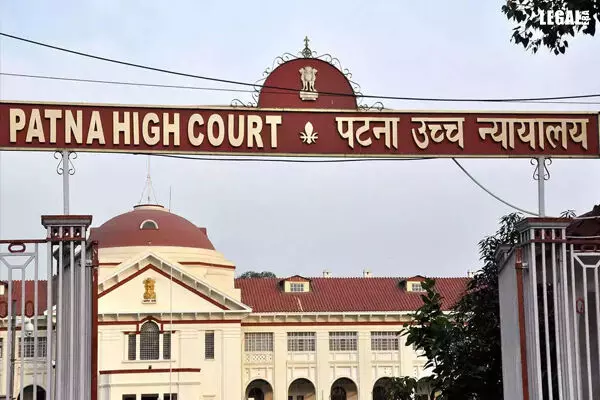- Home
- News
- Articles+
- Aerospace
- Artificial Intelligence
- Agriculture
- Alternate Dispute Resolution
- Arbitration & Mediation
- Banking and Finance
- Bankruptcy
- Book Review
- Bribery & Corruption
- Commercial Litigation
- Competition Law
- Conference Reports
- Consumer Products
- Contract
- Corporate Governance
- Corporate Law
- Covid-19
- Cryptocurrency
- Cybersecurity
- Data Protection
- Defence
- Digital Economy
- E-commerce
- Employment Law
- Energy and Natural Resources
- Entertainment and Sports Law
- Environmental Law
- Environmental, Social, and Governance
- Foreign Direct Investment
- Food and Beverage
- Gaming
- Health Care
- IBC Diaries
- In Focus
- Inclusion & Diversity
- Insurance Law
- Intellectual Property
- International Law
- IP & Tech Era
- Know the Law
- Labour Laws
- Law & Policy and Regulation
- Litigation
- Litigation Funding
- Manufacturing
- Mergers & Acquisitions
- NFTs
- Privacy
- Private Equity
- Project Finance
- Real Estate
- Risk and Compliance
- Student Corner
- Take On Board
- Tax
- Technology Media and Telecom
- Tributes
- Viewpoint
- Zoom In
- Law Firms
- In-House
- Rankings
- E-Magazine
- Legal Era TV
- Events
- Middle East
- Africa
- News
- Articles
- Aerospace
- Artificial Intelligence
- Agriculture
- Alternate Dispute Resolution
- Arbitration & Mediation
- Banking and Finance
- Bankruptcy
- Book Review
- Bribery & Corruption
- Commercial Litigation
- Competition Law
- Conference Reports
- Consumer Products
- Contract
- Corporate Governance
- Corporate Law
- Covid-19
- Cryptocurrency
- Cybersecurity
- Data Protection
- Defence
- Digital Economy
- E-commerce
- Employment Law
- Energy and Natural Resources
- Entertainment and Sports Law
- Environmental Law
- Environmental, Social, and Governance
- Foreign Direct Investment
- Food and Beverage
- Gaming
- Health Care
- IBC Diaries
- In Focus
- Inclusion & Diversity
- Insurance Law
- Intellectual Property
- International Law
- IP & Tech Era
- Know the Law
- Labour Laws
- Law & Policy and Regulation
- Litigation
- Litigation Funding
- Manufacturing
- Mergers & Acquisitions
- NFTs
- Privacy
- Private Equity
- Project Finance
- Real Estate
- Risk and Compliance
- Student Corner
- Take On Board
- Tax
- Technology Media and Telecom
- Tributes
- Viewpoint
- Zoom In
- Law Firms
- In-House
- Rankings
- E-Magazine
- Legal Era TV
- Events
- Middle East
- Africa
Arbitration clause not bar to maintainability of writ petition when liability to pay not disputed: Patna High Court

Arbitration clause not bar to maintainability of writ petition when liability to pay not disputed: Patna High Court
The High Court of Patna in its recent judgement held that arbitration clause is not a bar to the maintainability of a writ petition when the liability to pay is not disputed by the respondent.
The Division Bench of Justice Chakradhari Sharan Singh and Justice Madhresh Prasad held that once the liability to pay is admitted by the respondent, there remains no dispute that can be referred to arbitration, therefore, the arbitration clause would no longer be a bar to the writ petition.
The Court further held that in contractual matters, the payment to a party cannot be denied merely because the CAG has made adverse observations regarding the necessity of the work.
On 18.03.08, the parties entered into an agreement whereby the petitioner agreed to carry out certain anti-erosion works. The work was completed and the petitioner was given a Completion Certificate. Dispute arose when a part of the total consideration was withheld by the respondent. The petitioner was directed to place its claim before the Liability Committee of the respondent. The committee, after examining the claim of the petitioner, sanctioned the payment of withheld balance.
Thereafter, the CAG in its annual report stated that the expenditure incurred on the project work is futile. Consequently, the remaining payment to the petitioner was not made due to the comments made by the CAG and the State Government prepared a report justifying the execution of the work. The matter has also been placed before the Public Accounts Committee of the Legislative Assembly to delete the observations of the CAG.
Aggrieved by the non-payment, the petitioner filed the Civil Writ petition praying for a direction to the respondent to pay the balance amount to it. The respondent also filed its counter-affidavit, it raised certain objections, however, it did not dispute its liability to pay.
In light of the submissions made by both parties, the Court held that the Liability Committee as well as the respondent in its counter-affidavit have admitted the amount as due, therefore, once the amount is held to be due no dispute remains that can be referred to arbitration.
The Court further held that the liability of the respondent to pay the petitioner is independent of the observations made by the CAG regarding the project work. The Court held that it was respondent's decision to invite tenders for the said work and once the petitioner has executed the work, it cannot be denied payment merely because the CAG has made some adverse observation regarding the necessity of the work done.
Accordingly, the petition was allowed and the respondent was directed to pay the balance amount to the petitioner within 3 months.



